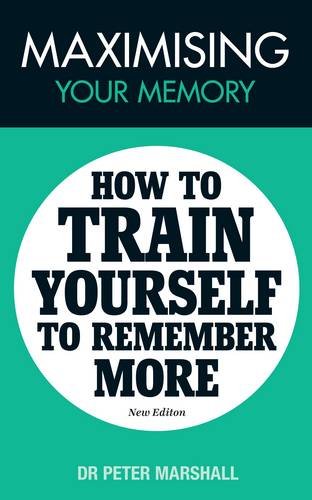Synopsis:
A powerful memory brings obvious advantages in educational, career and social terms. At school and college those certificates that provide a passport to a career depend heavily on what you can remember in the exam room. In the world of work, being able to recall details which slip the minds of colleagues will give you a competitive edge. In addition, one of the secrets of being popular with customers and friends is to remember their names and the little things that make them feel they matter to you. This popular book, now in its second edition, explains clearly how you can maximise your memory in order to achieve your academic, professional and personal goals.
Review:
This book's title and subtitle, 'How to train yourself to remember more', indicate a realistic and practical approach to the subject. The first chapter briefly explores some of the situations at work, in education and in social life where remembering can be important. The next section briefly and clearly outlines just what memory is, how it works, and how it sometimes fails, what helps it to operate efficiently and what blocks it. Successive chapters, written in a down-to-earth style, cover 'putting the material in, 'keeping it -there', and 'getting-it out'. There are sections on 'chunking' (a form of set theory), associating and using these and other techniques efficiently. Each chapter ends with a summary, and most include questions or discussion points.
The author wears his scholarship lightly and writes in everyday language with plenty of examples. This book could be of interest to those in the examination years, and also possibly to some teachers. At the time of writing, I've not been able to discover whether Dr Marshall's advice will help improve my own dreadful memory for names.
Robert Protherough, The School Librarian Journal
"About this title" may belong to another edition of this title.
![]()
